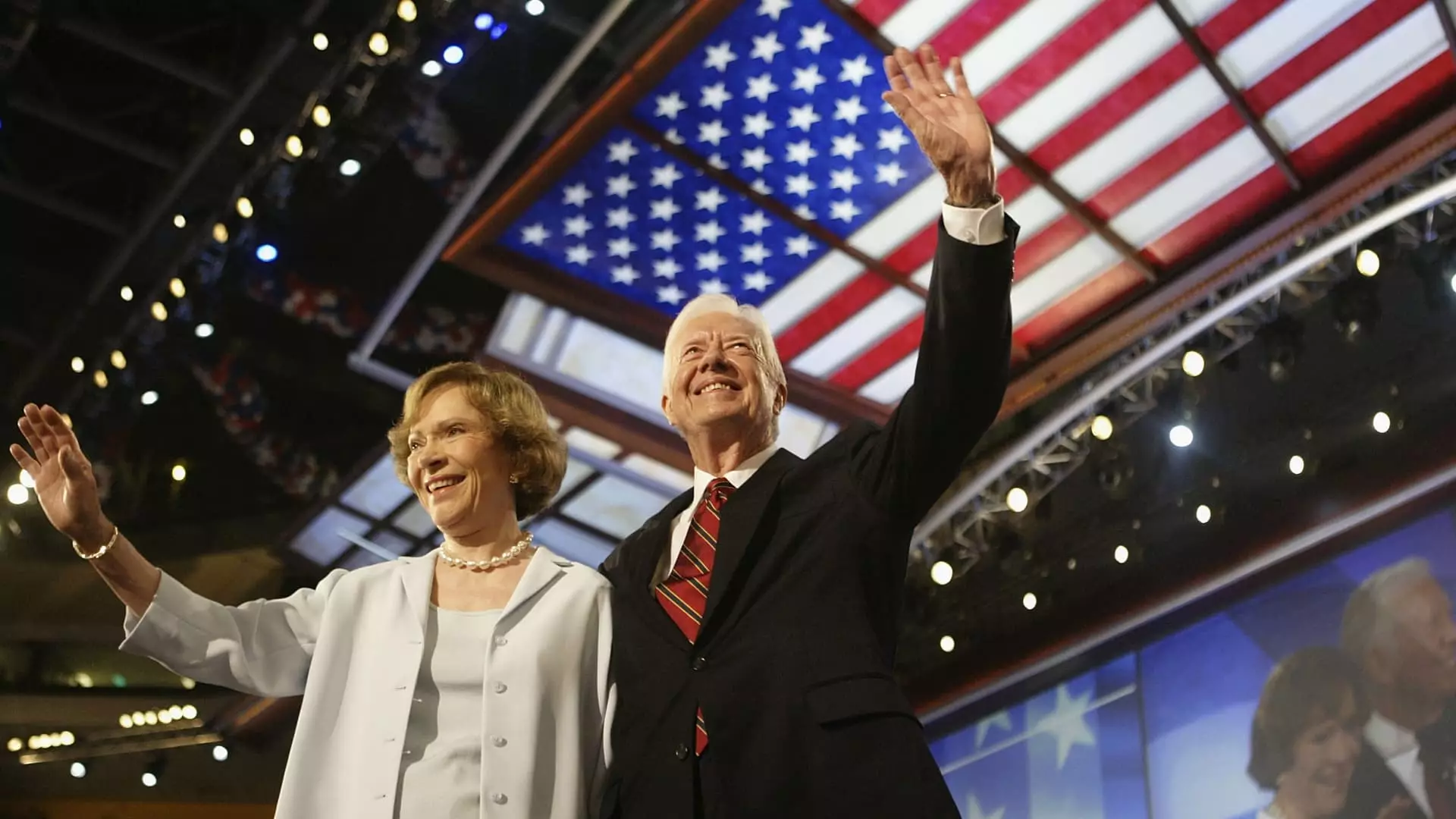The recent passing of former President Jimmy Carter has evoked a wave of tributes from leaders across the political spectrum, showcasing the profound impact he had on American society and politics. Just moments after the announcement from the Carter Center, both Democratic and Republican leaders took to social media and official channels to pay their respects. This immediate outpouring of grief and recognition indicates the bipartisan nature of Carter’s legacy, highlighting his role as a unifying figure in a time of increasing polarization.
Senate Majority Leader Chuck Schumer lauded Carter for his unwavering faith in the American populace, emphasizing the virtues of kindness and humility that Carter embodied. This sentiment aligns with a broader view of leadership that sees value in genuine service over mere rhetoric. On the other side of the aisle, Senate Minority Leader Mitch McConnell articulated Carter’s character by drawing an analogy to the richness of American soil, likening his lifelong commitment to public service and humanitarian efforts to the nurturing nature of his Georgia roots.
Carter’s post-presidential years have often been noted as even more impactful than his time in the White House. The establishment of the Carter Center stands as a testament to his enduring commitment to human rights and social justice. Through the center, he worked tirelessly on initiatives aimed at alleviating human suffering around the world. His focus on community service and philanthropy, particularly with organizations like Habitat for Humanity, illustrates a profound devotion to improving the lives of others.
This aspect of Carter’s character was highlighted by multiple lawmakers, illustrating that his contributions extended far beyond the policies he enacted as president. In a time when American faith in leadership is being challenged, Carter’s example of dedication to community-driven initiatives presents a model for future leaders. Several political figures, including former President Bill Clinton, reflected on their admiration for Carter, reminiscing about their collaboration and support.
Carter’s post-presidency efforts serve as a case study in ethical leadership, characterized by a focus on humanitarian work rather than political gain. Senator Mike Lee aptly noted that Carter’s extensive humanitarian contributions have set him apart from his contemporaries, especially in a public sphere often dominated by controversy and partisanship. His work with global health initiatives and his battle against diseases exemplify a dedication to global welfare that transcends national borders.
The former president’s deep Christian faith informed much of his humanitarian efforts. This faith drove him to teach Sunday school in his hometown of Plains, Georgia, long into his retirement, reinforcing the idea of faith as a guiding principle in his life. Various politicians emphasized this aspect of Carter as they remembered him, acknowledging his genuine commitment to serving others through a lens of Christian compassion.
The notion that Carter’s legacy will endure is echoed across political lines. Many leaders, regardless of their partisan affiliations, conveyed that Carter’s model of engagement, advocacy, and humility would continue to inspire future generations. Senator Mark Warner and Congress Leader Hakeem Jeffries encapsulated this sentiment, noting that Carter exemplified a life devoted to service, creating a lasting blueprint for civic responsibility.
In a political landscape marked by division, the respect garnered by Carter underscores the potential for shared values. Senators from both parties recognized his lifetime of service, with Republican Senator Rick Scott highlighting Carter’s commitment to public service while expressing condolences for his family. The respect shown to Carter even from those who held differing political views reveals a collective recognition of a man who wanted to make the world a better place.
Jimmy Carter’s life, both as a president and a humanitarian, serves as a powerful reminder of what can be achieved through genuine dedication to public service. The tributes from political leaders across the aisle not only reflect personal sentiments but also signify a collective acknowledgment of the principles he stood for. As discussions surrounding his legacy continue, one thing remains clear: Carter’s faith-driven approach to service and his advocacy for humanitarian causes have set a standard that future leaders can aspire to follow. In honoring his memory, we reaffirm our commitment to fostering a culture of kindness, humility, and service—a legacy that Jimmy Carter leaves behind for us all.


Leave a Reply